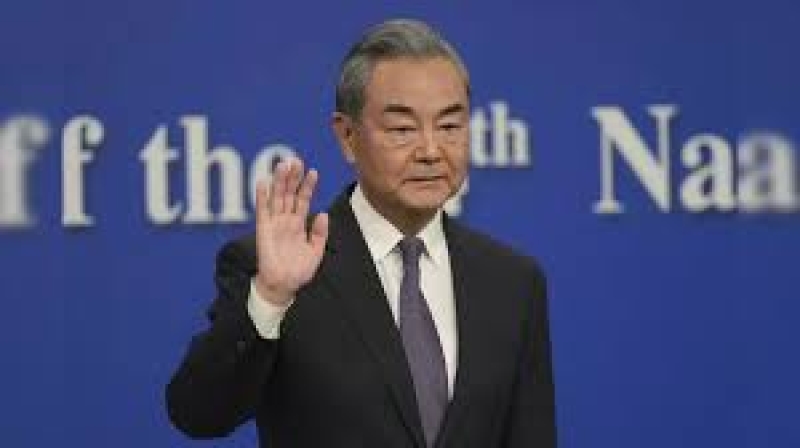- Trump says US aims to destroy Iran's military, topple government |
- Stock indices rally at DSE, CSE despite shrinking turnover |
- Tehran hits back across region after US and Israel attack Iran |
- African Union calls for restraint in Middle East |
- Iran-Israel Tensions Stoke Energy Risks for Bangladesh |
China Criticizes Trump’s Tariffs, Threatens Retaliation

Chinese Foreign Minister Wang Yi criticized the United States on Friday for imposing tariffs on Chinese imports, warning that China would "resolutely retaliate" if Washington continues to ramp up pressure on Beijing.
Speaking during the annual meeting of China’s parliament, Wang questioned the effectiveness of the U.S. tariffs, which he said have caused more harm than benefit, and urged Washington to avoid escalating conflicts. "The U.S. should reflect on what it has gained from all these trade wars and tariff battles," Wang said, emphasizing that the economic relationship between the two countries should be "mutual and reciprocal."
Wang also condemned the U.S. for suppressing and containing China, calling such actions a "two-faced approach" that undermines bilateral trust and stability. His remarks came just three days after the U.S. imposed an additional 10% tariff on Chinese imports, bringing the total tariff rate to 20%. In retaliation, China imposed tariffs of 10% to 15% on a range of American agricultural products.
While critical of the U.S. tariffs, Wang reaffirmed China’s commitment to maintaining a "stable, healthy, and sustainable development" of China-U.S. relations, based on "mutual respect, peaceful coexistence, and win-win cooperation." He called on the U.S. to adopt a more rational and objective view of China’s development and to engage in pragmatic exchanges.
In addition to addressing trade tensions, Wang criticized the U.S.’s Indo-Pacific strategy, which includes deploying missiles to countries like the Philippines. He said the U.S. plan has only "stirred up trouble and created divisions" in the region. "Asia should be a place to showcase international cooperation," Wang said, reiterating China’s commitment to "open regionalism" and mutual development in Asia.
Analysts suggest that Wang’s comments reflect China's strategy of addressing U.S. policies firmly but cautiously, without escalating tensions further. "China is signaling that the Trump administration is wrong, but it is not offering concrete proposals, possibly to avoid further deterioration of relations," said Ian Chong, a political scientist at the National University of Singapore.
Wang also reiterated China's commitment to multilateralism, opposing "unilateralism" and "hegemony," implicitly criticizing the U.S.’s withdrawal from international organizations and its freeze on foreign aid. "We will safeguard the multilateral free trade system and promote inclusive economic globalization," Wang stated, while calling for more recognition of the Global South’s voice in international affairs.
Some experts view Wang’s comments as part of China's broader effort to position itself as a stable, "status-quo" power in contrast to the U.S.'s more aggressive foreign policies. "China wants to reassure other countries that it is a safer, more reliable partner, especially as the Trump administration pursues a more confrontational approach with both allies and adversaries," said Wen-ti Sung, a political scientist at the Australian National University.
Regarding Sino-Russian relations, Wang emphasized the strength of the partnership between China and Russia, regardless of external pressures. "The historical logic of Sino-Russian friendship remains unchanged," Wang said, highlighting that Beijing and Moscow would continue to support the international system with the U.N. at its core.
On Taiwan, Wang reaffirmed China’s stance that advocating for Taiwan independence is a violation of its sovereignty. "Supporting Taiwan independence destabilizes the Taiwan Strait," he said, adding that eventual reunification with Taiwan is inevitable.
As tensions rise with the U.S., Wang’s statements suggest China’s determination to protect its interests while avoiding escalation, positioning itself as a key global player amid shifting international dynamics.

